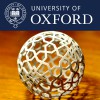Michael Karayanni - Religion and State among the Palestinian-Arabs in Israel: A Multicultural Entrapment
The religion-and-state debate in Israel is Jewish centred and systematically disregards the Palestinian-Arab minority. This is rather puzzling. For the religion-and-state debate in many other countries does take up conflicts pertaining to minority religions, and the Palestinian-Arab minority did generate quite a diverse series of questions that could have easily qualified as part of the existing debate. In this article, I decode this anomaly by pointing out the existence of a legal matrix in the Israeli religion-and-state debate. This matrix identifies the recognition accorded to Jewish religious institutions and norms as "public and coercive" but that accorded to the Palestinian-Arabs as "private and liberal". In the second part of this article, I point out some of the legal implications of this matrix as well as critically evaluate if what seems to be "private and liberal" is in fact as such.
Michael Karayanni was born in Kafr-Yasif, a Palestinian village located in the Western Galilee in Israel. After obtaining his undergraduate law degree at Bar-Ilan University (LLB 1990) and being admitted to the Israeli bar, he went on to pursue graduate studies in law in the United States (George Washington University, LLM 1994, University of Pennsylvania, SJD 2003) and in Israel (Hebrew University of Jerusalem, LLD 2000). His academic base is at the Hebrew University of Jerusalem, where he is today the Bruce W. Wayne Professor of International Law. Throughout his career at Hebrew University he has held a number of administrative positions, among them Dean of the Faculty of Law, Academic Director of Minerva Center for Human Rights, Director of Sacher Institute for Legislative Research and Comparative Law and Founding Director of Center of the Study of Multiculturalism and Diversity. He has also held visiting positions at Wissenschaftskolleg zu Berlin, Georgetown Law Center, Melbourne Law School, Stanford Law School, Yale Law School and Institute for Advanced Study in Princeton. Recently he was elected to the Institut de Droit International. His work focuses on issues of private international law and interreligious law, civil procedure and multiculturalism.




